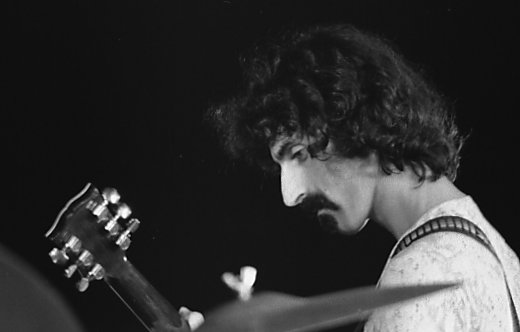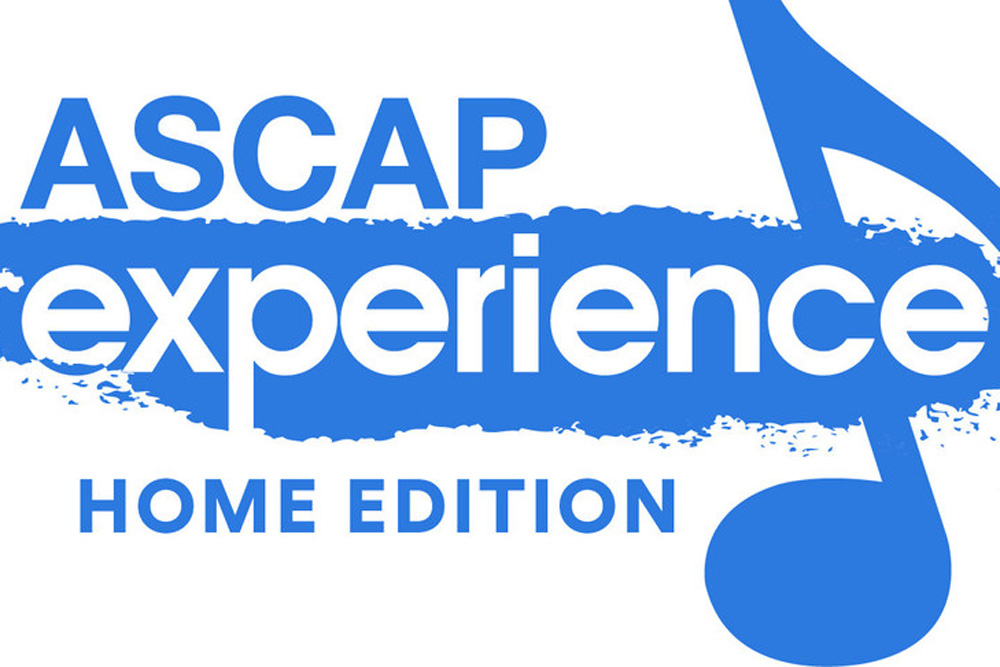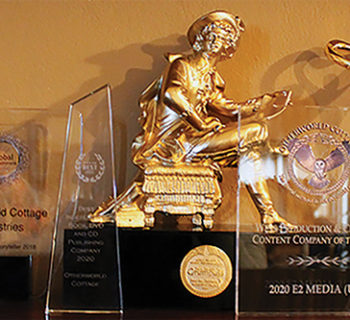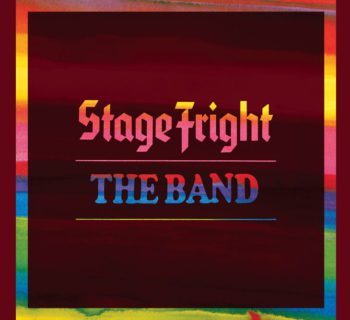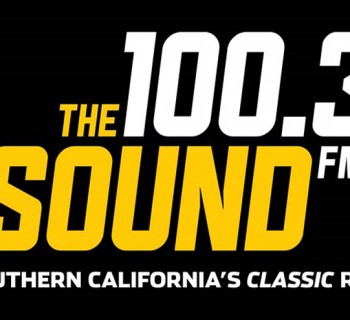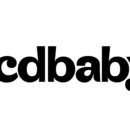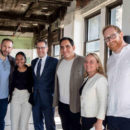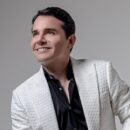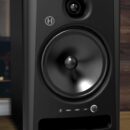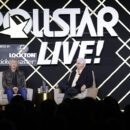To commemorate the 50th anniversary of Frank Zappa’s celebrated but short-lived 1970 Mothers Of Invention lineup, "Portuguese Fenders” is available to stream today. It is the first track to be released from the new collection, The Mothers 1970.
The newly discovered gem is one of 70 unreleased live and studio recordings featured on The Mothers 1970, and will be available digitally and as a 4CD box-set June 26 via Zappa Records/UMe. Recorded live by Zappa on his tape recorder on tour in 1970, “Portuguese Fenders” is a rollicking live recording featuring an exhilarating guitar solo by the iconoclastic composer and virtuosic guitarist backed by the revered ensemble.
Overseen by the Zappa Trust and produced by Ahmet Zappa, Zappa Vaultmeister, and Joe Travers, The Mothers 1970 collects more than four hours of previously unreleased performances by the heralded lineup which lasted roughly seven months. Credits include Aynsley Dunbar (drums), George Duke (piano/keys/trombone), Ian Underwood (organ/keys/guitar), Jeff Simmons (bass/vocals) and Flo & Eddie aka Howard Kaylan (vocals) and Mark Volman (vocals/percussion) of The Turtles, who performed under the aliases to skirt contractual limitations of performing under their own names. This iteration of The Mothers 1970, which likely began rehearsals fifty years ago this month, came to an end in January of 1971 when Simmons quit the band during the making of the 200 Motels movie.
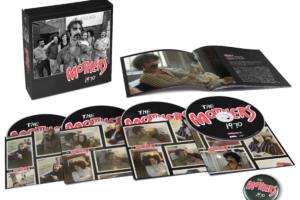
The Zappa Records/UMe media announcement below details the upcoming product.
The Mothers 1970 encapsulates the band’s brief but productive span, which included two visits to the studio – resulting in the fantastic 1970 album, Chunga’s Revenge – and tours across the US, Canada, and Europe. Divided into four parts, the collection is anchored by top-notch studio recordings recorded at the famed London-based Trident Studios on June 21-22 with a then-young, unknown producer in the engineering chair by the name of Roy Thomas Baker, several years before he’d go on to have massive success working with Queen, The Cars and Alice Cooper to name a few. An unreleased early mix by Baker of the Chunga’s Revenge track, “Sharleena,” is just one of the many highlights of the studio recordings that also boasts several unearthed rough mixes of the Zappa/Simmons co-write, “Wonderful Wino,” including a rare version that showcases vocals and an alternate guitar solo by Zappa that has been lost to the ages as the original multi-track stems were recorded over. Of the material recorded during these two days, “Sharleena” was the only song ever officially released – so tracks like “Red Tubular Lighter,” “Giraffe” and an unheard version of “Envelopes” are completely brand new to fans half a century later.
The band’s live prowess is represented with a slew of concert recordings, including the first official release of the oft bootlegged “Piknik” performance originally broadcast on Dutch radio station VRPO, and live performances from concerts in Santa Monica, CA and Spokane, WA, which have been edited together and presented as a hybrid concert since both shows were not fully captured. The release is rounded out with a selection of live highlights recorded around the U.S., interspersed with candid moments recorded in dressing rooms, motel lobbies, and on stage with Zappa who took his personal UHER recorder everywhere. All recordings comprising The Mothers 1970 were sourced from their original tapes discovered in The Vault and digitally transferred and compiled by Travers in 2020. Some tracks were mixed by longtime Zappa Trust associate Craig Parker Adams and the collection was mastered by John Polito at Audio Mechanics.
It wasn’t until 1971 when Zappa would start documenting his gigs with a ½” 4-track recorder, so the 1970 tours were not captured in typical fashion. Instead, Zappa recorded as much as he could using his personal UHER recorder and it is these recordings that make up the second half of The Mothers 1970. Because of the nature of the recordings, it was virtually impossible for Zappa to record full shows due to the limitations of the tape recorder and the fact that he would often spool tape on the machine while playing on stage. Occasionally Zappa would have the sound man set up the recorder in the venue to tape the concert. This resulted in ambient recordings which appear on the Santa Monica and Spokane recordings as well as the live performances that make up the final disc.
Similar to the Gail Zappa-created “Road Tapes” live series, these recordings contain audience noise allowing listeners to experience what it was like to be there. The set lists focus heavily on songs from the albums Freak Out!, Absolutely Free, We’re Only In It For The Money, Uncle Meat, the then-recently released Burnt Weeny Sandwich and early workings of songs that would eventually be released months later on Chunga’s Revenge. Some of the many highlights include the extended guitar workouts, the first version of “Easy Meat” and rare live performances of “Would You Go All The Way?” and “Road Ladies.”
As Travers writes in the enlightening liner notes, which also include a wealth of live and behind-the-scenes photos from this era:
“It’s no secret that Frank was excited about this group. The cast of characters and their personalities, musically and personally, made for a very eventful and humorous chapter in Zappa’s career. Frank had a blast with these guys. Their sound was unique, their humor was like no other and yet their time was ultimately short-lived.”
THE MOTHERS 1970 TRACKLISTING
Disc 1 – Trident Studios, London, England June 21-22, 1970
- Red Tubular Lighter
- Lola Steponsky
- Trident Chatter
- Sharleena (Roy Thomas Baker Mix)
- Item 1
- Wonderful Wino (FZ Vocal)
- “Enormous Cadenza”
- Envelopes
- Red Tubular Lighter (Unedited Master)
- Wonderful Wino (Basic Tracks, Alt. Take)
- Giraffe - Take 4
- Wonderful Wino (FZ Vocal, Alt. Solo)
TOTAL TIME: 63:09
Disc 2 – Live Highlights Part 1 – “Piknik” VPRO June 18, 1970 / Pepperland September 26, 1970
- Introducing…The Mothers (Live on “Piknik” June 18, 1970)
- Wonderful Wino (Live on “Piknik” June 18, 1970)
- Concentration Moon (Live on “Piknik” June 18, 1970)
- Mom & Dad (Live on “Piknik” June 18, 1970)
- The Air (Live on “Piknik” June 18, 1970)
- Dog Breath (Live on “Piknik” June 18, 1970)
- Mother People (Live on “Piknik” June 18, 1970)
- You Didn’t Try To Call Me (Live on “Piknik” June 18, 1970)
- Agon (Live on “Piknik” June 18, 1970)
- Call Any Vegetable (Live on “Piknik” June 18, 1970)
- King Kong Pt. I (Live on “Piknik” June 18, 1970)
- Igor’s Boogie (Live on “Piknik” June 18, 1970)
- King Kong Pt. II (Live on “Piknik” June 18, 1970)
- What Kind Of Girl Do You Think We Are? (Live at Pepperland September 26, 1970)
- Bwana Dik (Live at Pepperland September 26, 1970)
- Daddy, Daddy, Daddy (Live at Pepperland September 26, 1970)
- Do You Like My New Car? (Live at Pepperland September 26, 1970)
- Happy Together (Live at Pepperland September 26, 1970)
TOTAL TIME: 63:34
Disc 3 – Live Highlights Part 2 – Hybrid Concert: Santa Monica August 21, 1970 / Spokane September 17, 1970
- “Welcome To El Monte Legion Stadium!” (Live)
- Agon (Live)
- Call Any Vegetable (Live)
- Pound For A Brown (Live)
- Sleeping In A Jar (Live)
- Sharleena (Live)
- The Air (Live)
- Dog Breath (Live)
- Mother People (Live)
- You Didn’t Try To Call Me (Live)
- King Kong Pt. I (Live)
- Igor’s Boogie (Live)
- King Kong Pt. II (Live)
- “Eat It Yourself…” (Live)
- Trouble Every Day (Live)
- “A Series Of Musical Episodes” (Live)
- Road Ladies (Live)
- “The Holiday Inn Motel Chain” (Live)
- What Will This Morning Bring Me This Evening? (Live)
- What Kind Of Girl Do You Think We Are? (Live)
TOTAL TIME 68:29
Disc 4 – Live Highlights Part 3 – FZ Tour Tape Recordings
- “What’s The Deal, Dick?”
- Another M.O.I. Anti-Smut Loyalty Oath (Live)
- Paladin Routine #1 (Live)
- Portuguese Fenders (Live)
- The Sanzini Brothers (Live)
- Guitar Build ’70 (Live)
- Would You Go All The Way? (Live)
- Easy Meat (Live)
- “Who Did It?”
- Turn It Down! (Live)
- A Chance Encounter In Cincinnati
- Pound For A Brown (Live)
- Sleeping In A Jar (Live)
- Beloit Sword Trick (Live)
- Kong Solos Pt. I (Live)
- Igor’s Boogie (Live)
- Kong Solos Pt. II (Live)
- Gris Gris (Live)
- Paladin Routine #2 (Live)
- King Kong - Outro (Live)
TOTAL TIME: 74:08
This century I interviewed Mark Volman and Howard Kaylan about Frank Zappa. Volman in 2009, Kaylan during 2013. Years before joining the Mothers’ 1970 lineup, the duo met and knew Zappa going back to 1966.
Mark Volman: “I was a big fan of Frank early on. Howard (Kaylan), and I from the Turtles were around the Freak Out recording sessions and we later saw Frank and the Mothers of Invention in New York in 1967 when Frank and that band had a residency at the Garrick Theatre. We were invited to Frank’s apartment in New York after one of the shows.
Herb Cohen, Frank’s manager, invited us to go to the UCLA show with Zubin Mehta in 1970. Herb was a second cousin of Howard Kaylan, my partner in the Turtles. We knew the ‘California mentality’ that defined Frank. We bonded over Doo Wop and soul music.
After the UCLA show we were asked backstage. Frank then invited us that weekend to a barbecue at the Zappa’s house. We brought our families. Frank told us to bring our saxophones. He took us downstairs to the ‘dungeon of horror’ and played some music for Howard and me. He quickly saw that we were not sax players. He said, ‘Look, we’re going over to England for eight shows. How would you like to come along and sing?’ We also did some US shows and recorded with him for the first time a piece of music that came out on Chunga’s Revenge. We did some other songs in the studio with Frank including “Rudy Wants To Buy Yez A Drink” and “Would You Go All The Way?”
Frank was a Mother but we were Turtles, and he always wanted to know about our experiences. He thought we were stars. To him, the Turtles were like the Beatles. ‘What was that like?’ We told him a story about groupies; how these girls would do anything we wanted sexually if we would just sing ‘Happy Together’ for them. With that story began a two year relationship culminating in the motion picture, 200 Motels. Frank let us go through a litany of Los Angeles things that were in the live Fillmore East album. We were singing the praises of one of the greatest cities in the world. Like Frank, we were Los Angeles children. 200 Motels becomes the embodiment of our time with Frank. And we did Just Another Band From LA with him. After Chunga’s Revenge, we had what I used to call, ‘studio survival sessions,’ which is music he had recorded live and then we would work on it in the studio and clean it up. Some of those recordings were taped in concert. He recorded every show we did for over 2 years.
Rehearsing with Frank was scary. He was the embodiment of a union man. There was never a time for fun. Putting together ‘Billy the Mountain’ was a series of vignettes that connected around a 43 minute opera. Howard and I usually started with Frank on guitar, the three of us, and we were given the music to learn. Frank felt most comfortable playing and singing the melody so there are very few times where Frank placed himself into the four-part harmony or three-part harmony. He kind of left that to Howard, Jim Pons, and me. We’d take the bit and show up at the rehearsal hall on Highland Avenue and lead the band through what he wanted.”
Howard Kaylan: “Back in that era in 1966 and ’67, before ‘Happy Together’ hit, and we were still LA street people working in the same clubs and stuff, there was enough of a camaraderie there. Not only through our knowing him, but also through Herb and going to the Zappa Log Cabin in Laurel Canyon.
I loved him and the records. He was singing about growing up. I was trying to sing about growing up, too. It wasn’t that far apart. Nobody made distinctions in that canyon of dreams back then as to what type of music you were doing. If you were Lester Chambers and you were living in that canyon, Joni Mitchell didn’t question what kind of music you were doing. Nobody did. Everybody was in there for themselves, to make their music shine for a minute while the bright stars were already living there. We didn’t want to change things. We wanted so badly to be a part of it that finding our place was so important. I’m not sure, as Turtles, we ever found our place, but as Mothers we sort of busted out of our comfort zone a little bit. I think the Turtles were comfortable for us. Because it was just the Cross Fires, a [Westchester] high school band, so we could always fall back on our memories and our school yard stuff.
The contact that I had with Frank was mostly through Herb Cohen. We’re like third cousins. Herb Cohen was at my Bar Mitzvah. Mark and I went to see Frank locally on the UCLA campus at Pauley Pavilion with conductor Zubin Mehta in May, 1970. I worshipped We’re Only In It For The Money, one of the greatest rock records of all time. The cover art, too. It was better to me than the Beatles were at the time. There was a lot more content. A lot more undertone. A lot more sub-plot. A lot more ‘Wake Up America’ kind of thing. Whether it was real or imagined, I thought that Frank was the most brilliant writer that I had ever seen, socially, since Dylan. I loved the Beatles stuff, and not to take away from it, but this was new. I wore out copies of it. 8-track. I had it every place.
So we go down to UCLA at Pauley Pavillion to see the reunion of this early Zappa first band with Roy Estrada, Ray Collins, Bunk and everybody new from the Garrick Theater days. And we loved it. Spectacular concert. The Turtles had broken up. Frank says, ‘Lemme ask you a question. Do you guys know what you’re gonna do yet? Because...’ and he didn’t even give us a chance to answer, ‘Cause I’m putting together a new bunch of Mothers and I want to go to Europe and I want to make a movie. What do you think?’ We looked at each other in awe. Mark and I were so into that We’re Only In It For The Money album at the time, we would have gone anywhere. We were flattered.
He then asked us that day if we wanted to come with him for ten booked dates in Europe that would possibly lead to a movie. That he was going to be writing a movie as these dates were going on in Europe. He didn’t have a script yet, but he was going to call the thing 200 Motels. And then we play with Frank at the next UCLA show, it wasn’t like I was returning triumphantly to the campus where I briefly went to school. It was just another show. I think I had deeper feelings for the shows we did at the Santa Monica Civic Auditorium. Because my parents were there and maybe the first and only time they had seen me not as a Turtle but as a Mother of Invention. It was great fun and a show I looked forward to every single night.
Once the British thing was over and we realized we were going full speed ahead, we went right back into the rehearsal hall and started prepping for a much longer segment European tour that took us all over the place. Mostly doing the stuff that would turn up on 1971 Live Fillmore East album. But a lot of the older stuff, the medleys Frank would make up. And it wasn’t just power, it was just a mastery. There was some deep compassion in the man that it actually was very empathetic. He could listen, whether he was listening for his own personal gain later on to turn that into money later in the creative venture or not.
Well for me, it wasn’t so much what we did on stage, it was Frank’s demeanor off stage that made him paternal to me. On stage he was a band leader and we were guys for hire. The fact that we got away with improv only meant we were smart enough to know when to get out of it a bit in time for the music to come in. That’s what Frank respected. You could go off book as long as you got right back. No beats were lost and something was added. If you added something to the routine, it was always appreciated and repeated if you could on a nightly basis or made to be part of the folk lore in some way.
If it was not appreciated, Frank would let you know right on stage in no uncertain terms that this was not the time nor the place for that kind of thing. And later you would discuss it with him. It wouldn’t be a slap on the hand parent kind of talk. It would be very familial, more brotherly than paternal, but something that I never had before, which was an older figure that I respected respecting me back. The only other older figures in my life had been agents and managers who pretty much lied to me.
After the show, when everybody else eschewed talking music particularly, and got together with the abject point of not discussing the show in any way, shape or form, because it would taint the next performance, Frank wasn’t like that. Frank wanted to discuss the show, not so much the musical part of it. To find out why things worked and why things didn’t. He was very curious. Discussing what worked and why it worked and the social implications of it. So that he could stay on top of the pop music when we were brought into the band anyway, stay on top of the pop music side of things. Because Frank couldn’t, or wouldn’t. I mean, it didn’t interest him. What interested him was the public’s reaction.
You take it in as an anthropologist and re-cycle it. But you really don’t want to listen to it. You just want to understand why it’s a phenomena. So that’s what Frank was. He was very much the Margaret Mead of his generation.”

